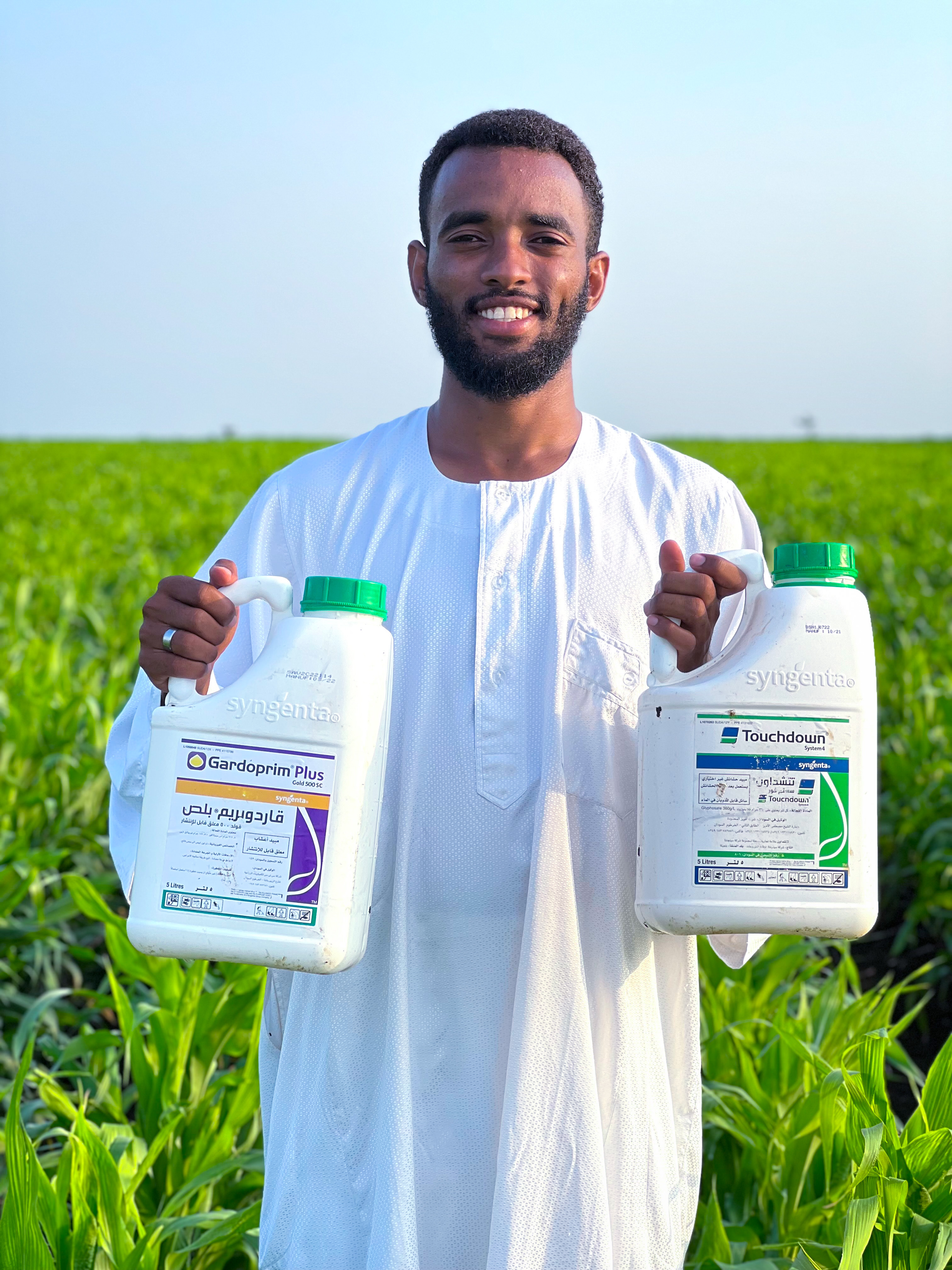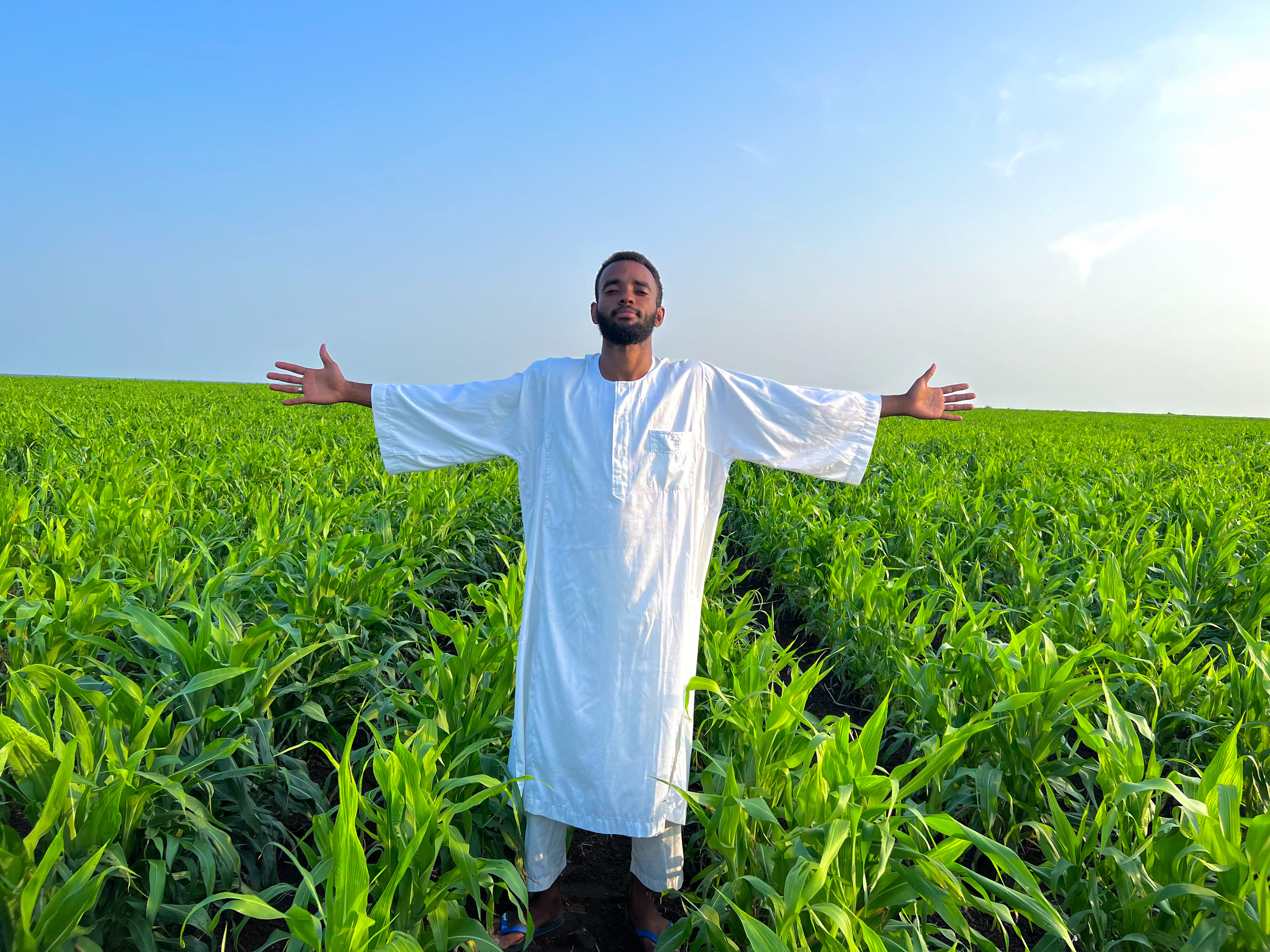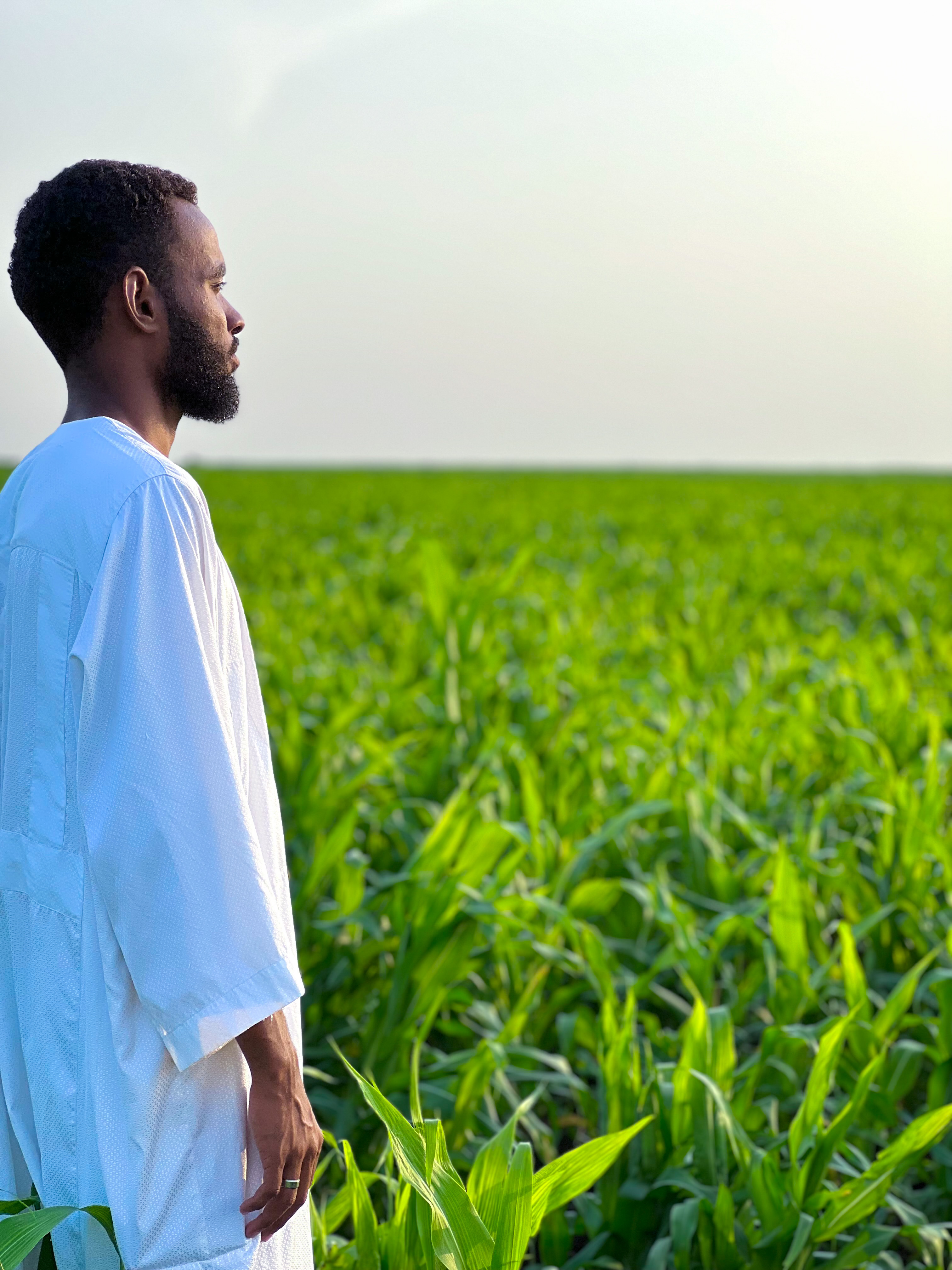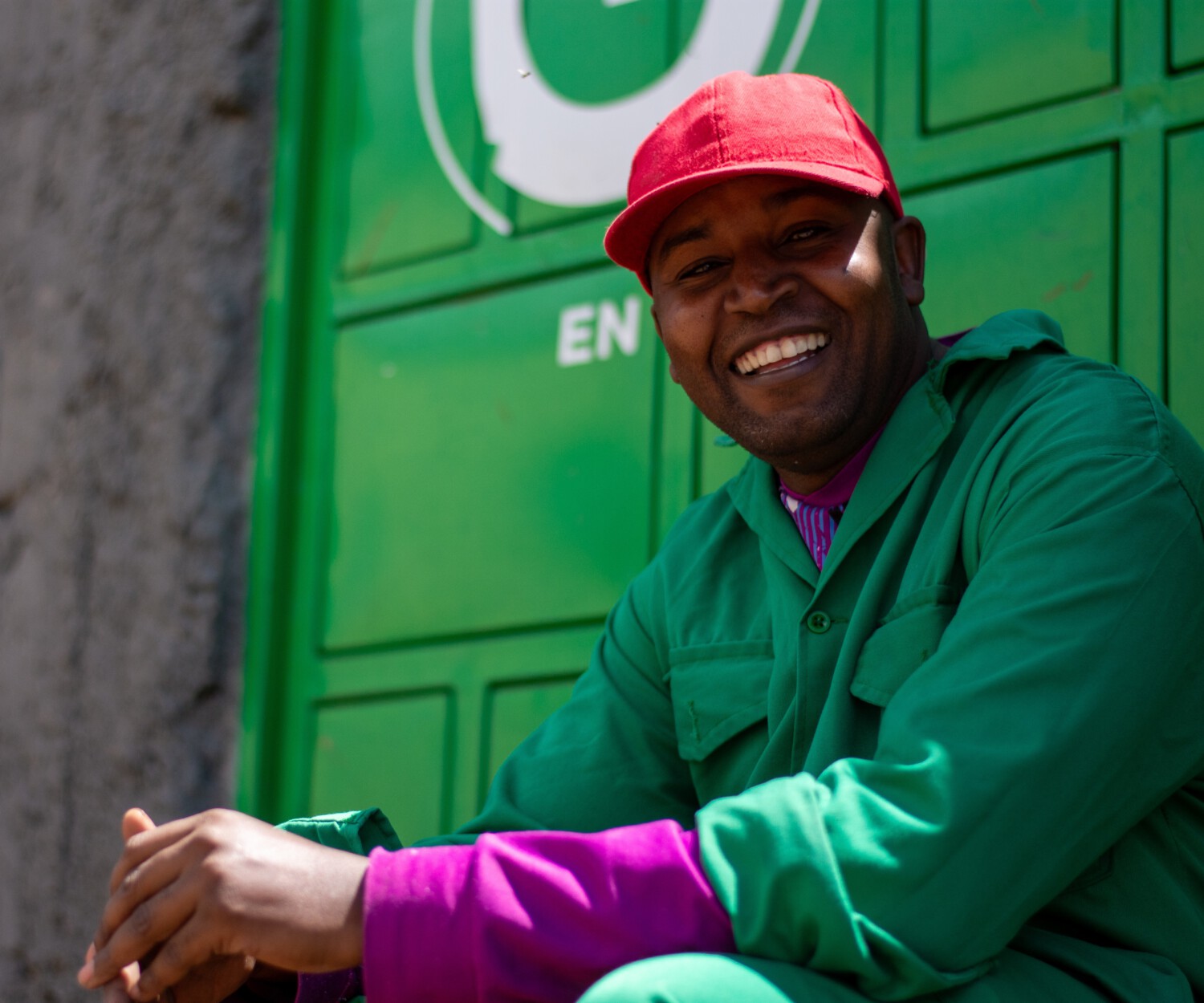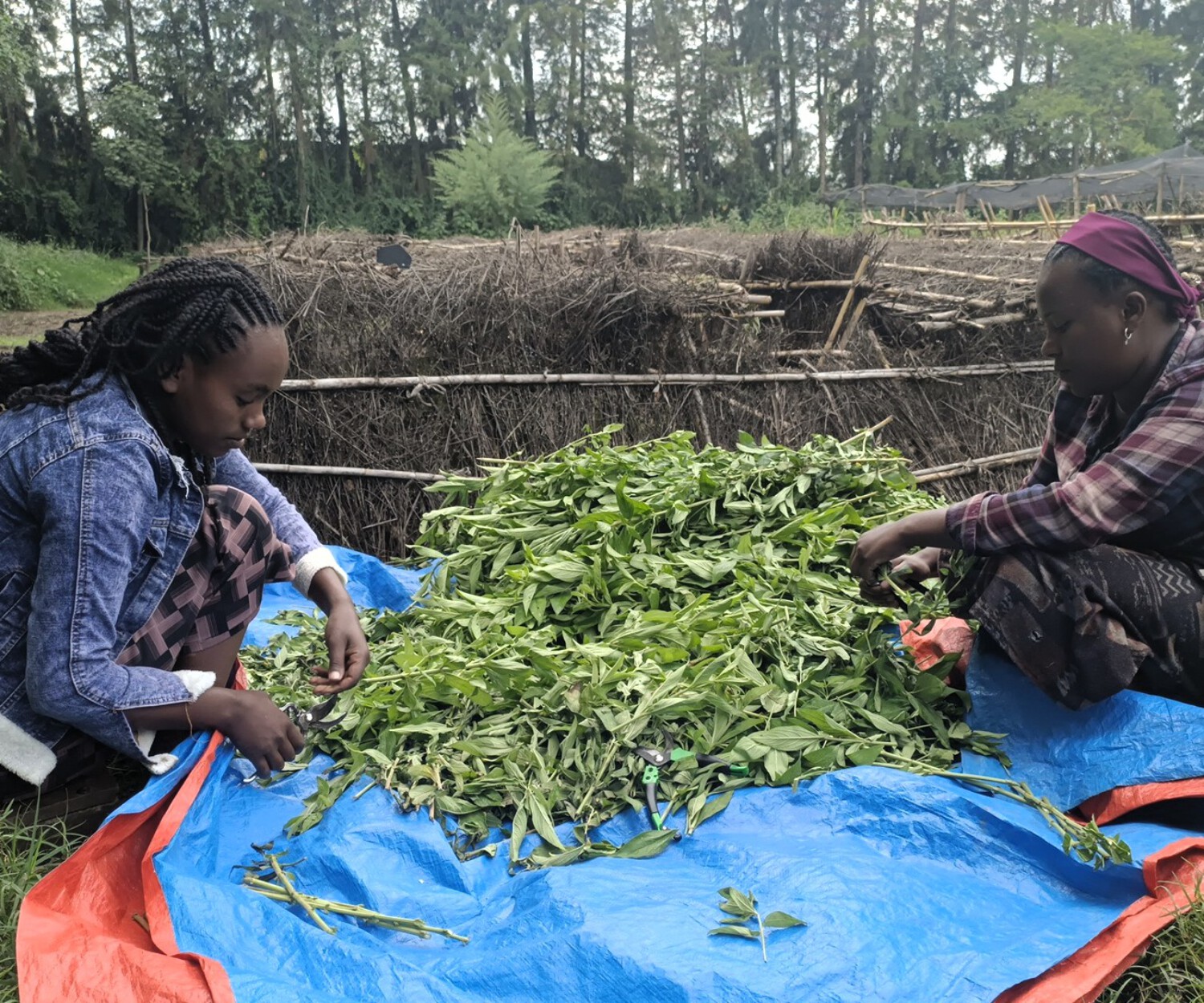Agrowise and the Power of Local Innovation in Sudan: When Resilience meets Reinvention
In a land where the soil is rich, but opportunity often feels scarce, Shihab Eldin Faisal dared to plant a different kind of seed – one rooted in resilience, innovation, and hope. His journey led to the founding of Agrowise, a pioneering agricultural enterprise born out of the Rhino Acceleration Programme, a project supported by 249Startups with co-funding by the Challenge Fund for Youth Employment.
Planting the Seeds of Agrowise
Shihab’s story begins far from the fields of Sudan’s agricultural heartland. He started his career as an electrical engineer, working for several years in a field that offered limited financial growth. As economic uncertainty in Sudan persisted due to conflict and political instability, he started to reassess his long-term prospects and explore opportunities with greater potential for profitability and impact.
This led him to make a deliberate shift into agriculture—not as a farmer, but as an investor. Recognising the sector’s inefficiencies and untapped potential, Shihab began working in agricultural investment, focusing on food security crops. He adopted modern technical farming packages and introduced crowdfunding as a financing mechanism, positioning himself at the intersection of innovation and economic opportunity.
Following this major career shift, Shihab took an even bolder step when he founded Agrowise in 2018, a company dedicated to managing agricultural projects and exports through modern technologies and irrigation systems for efficient crop growth. While the company’s official registration came later in 2024, the groundwork began years earlier through Shihab’s experimentation with production models for food security crops.
Alongside this, Agrowise also began connecting Sudanese farmers with local and international investors through crowdfunding and smart financing tools, creating a rare model of collaboration and sustainability in Sudan’s challenging agricultural landscape.
Having started with approximately 4 acres of wheat in 2018, Agrowise has grown against the odds to manage more than 2,300 acres in the rainfed sector for wheat and watermelon seeds and more than 1,100 acres under pivot irrigation for wheat – a total of 3,510 acres by April 2025.
Navigating the Storm: Conflict and Business Challenges
By 2019, Sudan was in the throes of revolution and subsequent political transition. The situation worsened in April of 2023, when armed conflict erupted between rival military factions, devastating infrastructure, destabilising markets, and severely disrupting agricultural exports and logistics.
Like many entrepreneurs, Shihab faced enormous pressure. But internal company challenges such as unclear planning, poor employee oversight, and weak legal and financial systems had already made progress difficult. The conflict only heightened these struggles, threatening the company’s survival.
While many businesses collapsed under pressure, Shihab stood firm. With limited resources and an uncertain future, he tried to adapt and find new ways to keep Agrowise afloat. In 2024, he came across the Rhino Acceleration Programme, an initiative by 249Startups in collaboration with CFYE. The programme was designed to support five impact-driven Sudanese startups in scaling and creating decent jobs for local youth despite the nation’s volatile environment.
Shihab’s experience with the programme was transformative, particularly in areas where the company lacked expertise such as management, planning, accounting, and finance. The team provided hands-on support to close these gaps and helped achieve strong business results. Through technical assistance, they also established formal employee contracts, structured internal systems, and developed strategic and operational plans to align with the long-term business vision. The programme also facilitated the creation of smart partnerships with farmers, companies, and women’s associations, significantly strengthening the company’s ecosystem.
For Shihab, it was not just about surviving the storm, it was about building a system that could thrive beyond it. Today, Agrowise is not only managing successful agricultural projects but also opening doors for Sudanese crops to reach global markets. From the fertile lands of Gadarif to the arid regions of the north, Shihab is proving that with the right management and mindset, Sudan can become a powerhouse in agriculture.
A Legacy Rooted in Purpose
Looking ahead, Agrowise is focused on tackling Sudan’s food security crisis by expanding the production of wheat and sorghum – two critical but underserved crops for the nation’s nutritional self-sufficiency. Partnering with accelerators like 249 Startups with support from CFYE, and NGOs such as the WFP, Agrowise is addressing Sudan’s seed production challenges by bridging the gap between modern agricultural practices and farmer adoption, working to shift mindsets and support smallholder farmers in achieving lasting food security. The company is exploring the use of digital farming tools, including drone technology for land management and pesticide application.
By working with smallholder farmers on Gezira Island and partnering with women’s associations, Agrowise is also pioneering a participatory investment model that places farmers at the center of development and investment decisions. The ultimate vision? A crowdfunding platform that directly connects international investors with agricultural projects in Sudan, serving as an ambitious step toward financial inclusion and sustainable growth, creating a bridge between global capital and local opportunities.
Rewriting the Narrative of Sudan
Shihab’s journey is a testament to resilience in the face of adversity. And in doing so, he’s not only contributing to the transformation of Sudan’s agricultural landscape but rewriting the narrative of a nation too often defined by struggle. His advice to young people is the culmination of learnings from his own journey:
Continue trying and benefiting from the lessons of failure more than the sweetness of success and have a sense of responsibility towards the future. Do not compare with others because every entrepreneur has a different story and different challenges.
Workforce and Employment Impact
- Permanent Staff: 21 employees, including engineers, administrative staff, and laborers responsible for year-round maintenance of the pivot irrigation systems and overall farm operations.
- Seasonal Workers: Local community members and Internally Displaced Persons (IDPs) hired for critical farming phases, including cleaning and harvesting.
- Between 80 and 100 workers per pivot are employed during cleaning and harvesting.
- Approximately 600 seasonal workers were employed during the summer and winter seasons for sesame harvesting.
- In total, around 1,000 workers were engaged across rainfed and pivot irrigation schemes during cleaning and harvesting phases, generating hundreds of jobs annually and supporting rural livelihoods and IDP communities.
Company Tractions
- Operational Achievements: Successfully cultivated 2,300 feddans in the rainfed sector for wheat and watermelon seeds and 1,080 feddans under pivot irrigation for wheat, a total of 3,380 feddans by April 2025. – leveraging advanced pivot irrigation systems to enhance productivity and optimize resource utilization.
- Financial Performance: Ongoing sesame harvesting, with projected returns of 120-150 million SDG per pivot, demonstrating the financial viability and scalability of its operations.
- Expansion Strategy: Preparing to cultivate 7 pivots of wheat in Northern State this winter, sustaining year-round production via a dual-cycle model. In Gedaref, targeting 3,000 feddans for sorghum to boost regional food security. Plans include introducing digital farming practices and enhancing yields in rainfed projects to improve farmer incomes, strengthen food security, and support economic well-being.
More stories
Interested in more?
Vacancy
Consultancy – Technical Assistant Expert
 Sade Aalto-Setala
Sade Aalto-Setala
 December 3, 2025
December 3, 2025
